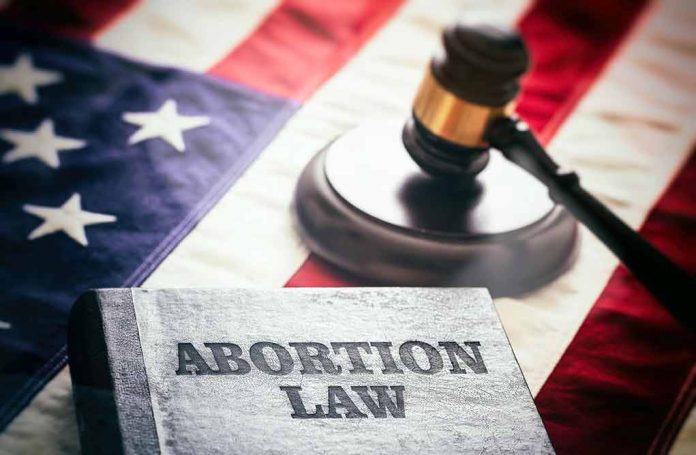
Missouri voters face a pivotal decision this November as they prepare to cast their ballots on a constitutional amendment that could dramatically reshape the state’s abortion laws, potentially reversing one of the strictest bans in the nation.
At a Glance
- Missouri will vote on a constitutional amendment to guarantee abortion rights in November
- The amendment would overturn Missouri’s near-total abortion ban enacted in 2019
- If passed, it would allow abortions until fetal viability (around 23-24 weeks) with exceptions for maternal health
- Missouri joins at least six other states voting on abortion rights during the presidential election
- The initiative gathered 380,000 signatures and raised $7.3 million to qualify for the ballot
A Battle for the Heart of Missouri
In the wake of the U.S. Supreme Court’s 2022 decision overturning Roe v. Wade, the battleground for abortion rights has shifted to the states. Missouri, which was the first state to ban abortion following that landmark ruling, now finds itself at the forefront of a nationwide trend of putting abortion rights directly to voters.
The proposed amendment would allow abortions until fetal viability, generally considered to be around 23-24 weeks of pregnancy, with exceptions for the health of the pregnant woman. This stands in stark contrast to the current law, which bans all abortions “except in cases of medical emergency.”
A Test of Conservative Values
For many conservative Missourians, this ballot initiative represents a critical moment to defend traditional values and protect the unborn. Opponents of the measure argue that it goes too far and could potentially remove important safeguards.
“The measure takes away the right from every person who loses a child or a loved one because of negligence during pregnancy, labor or delivery the freedom to sue for malpractice and obtain compensation,” Stephanie Bell, a spokeswoman with Missouri Stands with Women, said in a statement Tuesday.
This perspective highlights the complex legal and ethical considerations at play, reminding voters of the potential unintended consequences of broad constitutional amendments.
The Broader Context
Missouri is not alone in this fight. At least six other states, including Arizona, Colorado, Florida, Maryland, Nevada, and South Dakota, will be voting on abortion-related measures during the presidential election. This wave of ballot initiatives reflects the ongoing national debate over reproductive rights and states’ roles in regulating abortion.
It’s worth noting that since 2022, abortion rights supporters have won in all seven states where the issue has been put directly to voters. This trend has caught the attention of both sides of the debate, with each viewing Missouri as a critical battleground.
The Impact on Missouri Families
The current abortion ban in Missouri has had a significant impact on healthcare access for women in the state. Many Missourians now travel to neighboring states like Illinois and Kansas for abortions, creating additional burdens and potential health risks.
“In Kansas right now, we are serving mostly out-of-state patients, including Missourians, who’ve had to flee their home states in order to simply access abortion care,” Sandoval said Tuesday.
Supporters of the amendment argue that this situation is untenable and that Missouri women deserve access to comprehensive reproductive healthcare within their own state. Critics, however, maintain that the proposed amendment goes too far and could lead to late-term abortions with insufficient restrictions.
A Decision for Missourians
As November approaches, Missouri voters will need to carefully consider the implications of this ballot measure. The outcome will not only affect the legal landscape of abortion in the state but could also set a precedent for other conservative states grappling with similar issues.
Regardless of the result, this vote represents a significant moment in Missouri’s history – one where the people will directly shape the future of reproductive rights and healthcare access in the state. As citizens prepare to cast their ballots, they would do well to thoroughly research the issue, consider the potential consequences, and vote according to their deeply held values and beliefs.








